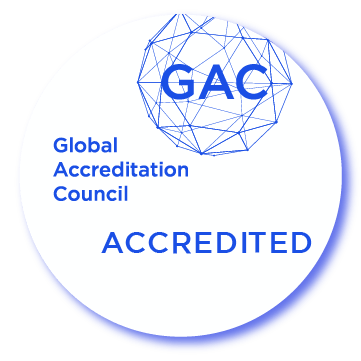
Course Description:
This course equips students with by exposing them to the rigor of and reliance placed on the accounting and financial fraternity, as well as an ability to critically consider how a business leader creates or destroys sustainability through financial and non-financial management and reporting.
We live in a world that is strongly shaped – and at times rocked – by financial markets, financial institutions and accounting practices. Many of history’s biggest business scandals and corporate bankruptcies – from the collapse of Enron and Lehman Brothers to the Bernie Madoff and Libor-fixing scandals – have all had finance and accounting at the heart of their demise. The current global financial crisis, which was triggered in 2008 by trading in sub-prime mortgages and toxic assets, five years later had cost the US economy alone more than $22 trillion, according to a Government Accountability Office estimate.
Unsurprisingly, financial institutions, and with it the accounting profession, have suffered serious reputational damage and are struggling to regain public trust. This has not been helped by the track record of excessive CEO remuneration and financial trader bonuses in the industry. The result has been a flurry of activism (such as the Occupy Wall Street movement) and legislation (such as Sarbanes Oxley Act and the Dodd-Frank Act). Business schools have also come under fire for their narrow shareholder-value approach to MBA education, which is at least partly to blame for the short-termism of financial markets and institutions that precipitated many of these crises.
This course will introduce students to the basic principles and practices of management accounting and finance, as well as helping them to understand some of the underlying causes of (the recent spate of) financial crises. Building on this foundation, the course will adopt a forward-looking, values-based approach which will explore how ethics and non-financial reporting are shaping accounting practices, including in the areas of measurement, control, reporting and auditing, as well as both finance practices and non-financial practices, including the evolution of corporate social responsibility to socially responsible investment, sustainable banking and ethical rating systems.
The focus of the course is not limited to a review of large, private sector corporates, as it also includes topics like community-banking, local exchange trading systems (LETS), public-sector’s role in managing inflation, NGOs, SME development and business support initiatives and programs, and the psyche of financial decision-making within an organization’s project portfolio management.
Learning Outcomes
By the end of this course you should be able to:
- Understand why society has developed currencies and financial value, which need to be measured, tracked and controlled;
- Understand the basic principles and practices of accounting, auditing, risk management and reporting – with a view to understanding the need for and the effectiveness of implementing accounting and managerial controls;
- Appreciate the decision-making of business managers;
- Understand sustainability, as it applies to the role of organizations in society;
- Reflect critically on the role of accounting and finance in society and its impact on people and the environment, developing the capacity for professional skepticism;
- Assess the health of companies based on their reported financial accounts and reports on non-financial activities; and,
- Identify key banking, insurance, accounting and reporting codes, protocols, standards and legislation aimed at improving the ethical and non-financial performance of the sector.
Faculty:
Richard Combrink, MBA specialises in building businesses from start-up to re-engineering, across a number of industries. He has operated in roles that include Chairman, Director, CFO, Project Manager and CEO in numerous private and public businesses. He has significant risk-management experience, has been a management consultant for Cap Gemini and has deep experience in financial services, having established investment funds in both the public and the private sector, one of which was a private equity fund in sustainability. He is currently an independent management consultant specialising in helping entrepreneurs set up, manage and change their businesses.
Richard first qualified with a B.Sc. and HDE (both from University of Cape Town) to teach at high schools, then later qualified with a B.Compt. (University of South Africa) and MBA (UCT) to formalise his interest in business, although remains involved in teaching through adult education programmes.
Richard has a passion for assisting entrepreneurs and creating jobs through enterprise development. He writes articles, talks on the radio and presents to entrepreneur audiences about business investments, starting and growing a business and dealing with problems entrepreneurs face every day. He has been ‘tuned in’ to the development of sustainability from its initial singular focus on global warming to the full development of integrated reporting.
Course Modalities:
Non-Credit Options
Lite Level – This course is delivered on-demand with no faculty interaction and is perfect for lifelong learners who want to go at their own pace and who are not interested in academic credit but still want to experience the course.
Audit-No Credit – If you would like to participate when this course is offered in our Live Virtual Classroom mode, you may attend the live faculty webinars but will not be required to submit assignments for credit.
If you take a few courses and decide you want to officially enroll in a degree program, you can gain academic credit for Lite versions or Audit-No Credit versions by paying the difference between these course fees and a normal academic fee, successfully completing quizzes, submitting your reflection journals and delivering a Final Creative Assignment that will be graded.
For-Credit Options
Live Virtual Classroom: Study that takes place within Ubiquity University, in which Ubiquity academic coursework is accomplished through attendance in Live Webinars, with faculty and student interaction being a part of the Live Webinar content. To receive academic credit, you must not miss more than 3 live sessions, you must complete the quizzes and submit any other required assignments (if any), and a final creative assignment for grading at the degree level you are enrolled in.
Internal Online Independent Study: Study that takes place within Ubiquity University, in which Ubiquity academic online coursework is engaged in independently on one’s own and does not include faculty interaction. To receive academic credit, you must complete the quizzes and submit your reflection journals and final creative assignment for grading at the degree level you are enrolled in.
The rules guiding our assignment collection and grading process can be found here: Ubiquity University Grading Policy
Our shopping cart is simple and easy to understand. If you do not have a user account, you will be able to create one upon purchase. Save your username and password as you will need it to login to access course materials later. For more detailed, step-by-step instructions you can review our tutorial How to Purchase a Course. Again, if you experience any issues, please email Veronica Saldias at registrar@ubiquityuniversity.org.
Course Contact Information:
Live Virtual Classroom macrocourses are delivered by faculty in live Zoom sessions. You will have a course facilitator who is available to answer questions and offer additional assistance and that information will be provided to you upon registration. Please do not email faculty directly with any technology or registration issues.
For on-demand lite or Internal Online Independent Study versions, click the “Chat” button down on the left-hand side of the screen for any technical issues or questions you may have about the content.


